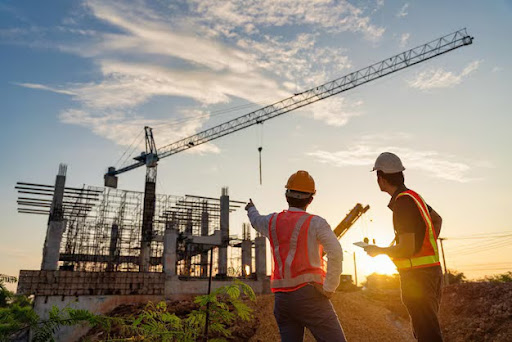Before someone builds a new house, shop, or office in the UK, they can’t just dig and start. Whether it’s a brand-new project or an extension to an existing building, certain checks are needed. These checks are done to avoid causing harm to nature and to keep neighbours protected from unexpected damage.
Imagine a family that wants to build a house next to a field. The field may have plants, trees, or animals living there quietly. Or think of someone who wants to build near a neighbour’s wall—if the digging shakes the ground, it could crack the wall or weaken it.
This is why trained professionals are needed. They look at the land, check for nature that should be protected, and make sure the project doesn’t break any rules or disturb other people.
Let’s explore who these specialists are and how they help construction projects go smoothly while respecting both nature and neighbours.
The Importance of Environmental Checks Before Building
In the UK, many laws protect plants, animals, and habitats. Building work must follow these rules. If not, developers can be fined or forced to stop work. This is where ecological assessments come into play.
Before any building starts, land must be checked to see if it has rare plants, nesting birds, bat roosts, or ponds where great crested newts might live. Even a quiet corner of a garden or field could be home to protected wildlife.
Professionals trained in environmental checks are often asked to carry out these inspections. They visit the site, take notes, and write reports that help planners, councils, and landowners make informed decisions.
Their job is to:
- Check for protected species and habitats
- Recommend actions to protect or move wildlife
- Advise when building can take place (some species are protected during certain seasons)
- Prepare reports for planning permission
When These Checks Are Needed
Many UK councils ask for these surveys during the planning application stage. This applies to projects like:
- New housing estates
- Single homes in rural areas
- Commercial units built on open land
- Converting old barns or outbuildings
- Extensions near hedges, ponds, or trees
Even small changes can affect wildlife. A simple garden shed close to a tree might disturb nesting birds. A new driveway could cut through a hedgerow where dormice travel. That’s why an early inspection is the best way to avoid issues later.
Types of Surveys They Offer
Environmental specialists offer different services depending on the land and project. Some of the most common include:
1. Preliminary Ecological Appraisal (PEA)
A general site check. This is often the first visit and helps decide if more detailed inspections are needed.
2. Protected Species Surveys
These are more detailed and target specific animals like bats, badgers, newts, or reptiles. The surveyor checks for signs like nests, droppings, or tracks.
3. Biodiversity Net Gain (BNG) Planning
This is a newer requirement where developers must show that their work will leave nature better off than before. This could mean planting more trees, adding wildflower areas, or creating small ponds.
4. Habitat Mapping and Management Plans
These outline how nature will be kept safe during and after construction.
For reliable and comprehensive guidance across the UK, Biodiversity Surveyor provides all these services with a deep understanding of environmental law and planning policy.
Why Acting Early Makes a Difference
Some species are only active during certain times of the year. For example, bats often roost in summer, while newts are mostly seen during spring. If checks are done too late, the project may be delayed for months until the correct season comes around again.
That’s why it’s best to speak to a specialist early—even before buying the land. They can explain what’s likely to be needed and help avoid delays.
Early checks can also:
- Lower the risk of fines or legal trouble
- Help with quicker planning approval
- Avoid surprises during construction
- Reduce costs from last-minute changes
Building Near Neighbours? You’ll Need a Different Kind of Surveyor
While environmental surveyors focus on land and nature, another group of professionals focuses on walls, boundaries, and nearby buildings. These experts help when construction work might affect another person’s property.
Let’s say you want to dig for a basement or extend your house right up to the fence. This can shake or change the land around it. It could even lead to cracks or water problems for next-door homes. That’s why UK law requires formal steps to protect everyone.
What Party Wall Surveyors Do
In the UK, there’s a law called the Party Wall etc. Act 1996. It says that when you’re working near or on a shared wall—or close enough to affect a neighbour’s property—you need to give proper notice.
A party wall expert helps you:
- Draft and send the legal notice to neighbours
- Arrange inspections before work begins
- Record the condition of walls and foundations
- Create a written agreement, known as a party wall award
- Handle any complaints or objections during the build
This service is useful for projects like:
- Loft conversions
- Rear extensions
- Digging foundations for a new wall or room
- Basement works
- Replacing boundary fences with brick structures
For professional guidance and legal clarity, Party Wall Surveyors from Delva Patman Redler assist homeowners and developers throughout London and the wider UK.
Why Combining Both Types of Surveys Is Often Needed
In many UK planning applications, both biodiversity and party wall assessments are needed. Here’s why:
- A new house on open land may need a wildlife check and approval to dig near someone else’s boundary
- A barn conversion might affect bats in the roof and a neighbouring structure if internal walls are altered
- An urban extension might sit near a tree with birds and shake the next-door wall
Having both professionals on board early can keep your project running on time and within legal limits.
Common Mistakes That Delay Projects
Unfortunately, many property owners don’t know these surveys are needed until it’s too late. Here are some common mistakes:
- Skipping an ecological check and disturbing protected wildlife
- Digging close to a neighbour’s property without sending proper notice
- Waiting until the last minute to get advice from a surveyor
- Ignoring local planning advice about habitat or boundary rules
- Using outdated property plans that don’t show true boundaries
These errors can stop a build, increase costs, and even lead to legal problems.
How to Choose the Right Experts
Whether you’re checking for wildlife or handling legal notices, choose professionals with:
- Experience in your local council’s planning area
- Proper training and legal knowledge
- Clear communication and reporting
- Fair, fixed-price services with no hidden charges
It helps to check if they’ve worked on similar projects before and can meet planning deadlines.
Final Word
If you’re thinking about starting a building project—no matter how big or small—it’s smart to speak with qualified professionals before laying the first brick. From protecting wildlife to managing neighbour boundaries, early planning is the key to a successful and stress-free build.
For trusted environmental support, Biodiversity Surveyor helps landowners, developers, and councils meet their responsibilities while protecting nature.
And if your project touches or comes close to someone else’s wall or foundation, Party Wall Surveyors from Delva Patman Redler provide the experience and legal support you need to stay compliant and on track.

